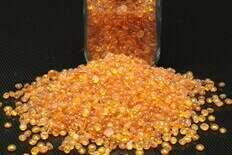- Vulkanox HS Scopeblue is ISCC PLUS-certified and reduces CO2 footprint by over 30%.
- Continental aims to use over 40% renewable and recycled materials in tires by 2030.
- LANXESS uses bio-circular acetone and renewable energy for Vulkanox HS Scopeblue production.
- The additive maintains the same chemical structure, requiring no production process changes.

Introduction
Continental has become the first tire manufacturer to utilize LANXESS's new Vulkanox HS Scopeblue rubber additive. This sustainable version of the established Vulkanox HS (TMQ) is ISCC PLUS-certified and offers effective protection for rubber compounds during vulcanization.
Sustainability Goals
Vulkanox HS Scopeblue reduces its CO2 footprint by over 30% compared to conventional products. This reduction is achieved through the use of bio-circular acetone and renewable energy in its production. The chemical structure remains unchanged, allowing tire manufacturers to maintain their existing production processes.
Production and Certification
LANXESS produces Vulkanox HS Scopeblue in a mass balance-based, ISCC PLUS-certified facility in Germany. The company employs a cradle-to-gate approach to calculate its carbon footprint, covering direct emissions, indirect emissions from energy, and other indirect emissions.
Performance and Durability
Vulkanox HS Scopeblue effectively protects rubber compounds from oxygen and heat during vulcanization, enhancing thermal stability and ensuring long-term tire performance. The additive is characterized by low volatility and low migration tendency, making it suitable for high-performance tire manufacturing.

